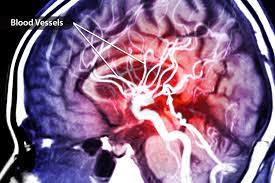 |
| Countless times on the therapy table |
I am always with pain in my affected stroke-induced leg, that sometimes gets unnoticed if I engage in an activity that I love, like watching Poldark again (which I have seen more times than I'll admit) or writing my blog (which I am doing now). I often wonder, when is it time to stop physical therapy (PT) altogether.
To be truthful, I have had many falls since the stroke almost 12 years ago. That's when I stopped going to the PT, multiple times, and lie on the sofa to rest whatever part was injured, and when I'd recover, I was back a few paces from where I'd been. To keep myself from falling, I eventually got a transport chair that keeps me safer. I can still walk with a cane, but I scoot around at home.
It stands to reason that I would never get rid of the pain, that mild tingling, annoying sensation that sometimes goes into spasmodic reverie every 18 seconds (I know because I counted), but at 72 years of age, what do I need physical therapy for anyway, arguing with myself, hoping that I'm wrong.
All physical therapists have had the patients who miss a couple of sessions, don’t listen to the recovery suggestions, or completely quit. Though physical therapy exercises are important for recovery, they can be tough to accomplish.
Steven Marano, PT and Facility Manager at Midwest Orthopedics in the Chicago-based Rush University Medical Center, estimates that most physicians or physiatrists will offer a four to six week prescription for PT, and for post-operative patients, between 12-16 weeks.
“Some of it is just patient expectation,” says Marano. “A lot of the time, people are unaware of how muscles are built, how mobility is increased, and how flexibility is increased. And I think it’s important on the first day to give them timelines for how long it’s going to take.”
But patients have lives outside of PT, and that can often get in the way, even for highly motivated patients. And the cost puts some patients in a dilemma likening to "the pain will go away if I want it to," often delusional thinking.
You might be increasing your reps and sets too quickly to prompt relapse and going backwards to the gains you've made. Therapists that I've interviewed think this is the number one reason people stop physical therapy suddenly.
Dennis Treubig, PT, DPT, refers to the Pareto Principle, or the 80/20 rule.
"In case you are not familiar with this principle, it states that, for most events, approximately 80% of the effects come from 20% of the causes. I believe this is applicable to rehab exercises – 80% of our results probably come from 20% of the exercises we give to patients (or should come from 20% of the exercises). This means that if you focus on the appropriate 3-4 exercises and cut out the rest, you will get similar results. And, I believe, better satisfaction from your patients."
Excellent thought, Dennis! More and more exercises may not be better.
If I make an increase in repetitions or sets of exercises, I increase by one time meaning, if I have been doing that exercises 5 times, when I increase it, I do it for 6 times. I keep a log and average increasing reps about once every two weeks, and if it's too much, I revert to the original right before the increase.
I refer to it as the bad pain and the good pain, distinguished only by my heading for the sofa to rest, breathless and just getting there [bad pain] opposed to a feeling that I've accomplished something and can still scoot or walk [good pain]. There's a very fine line between the two, of course. But listen to your body. It'll know.
So my conclusion? I'll take physical therapy as long as the doctor says it's beneficial, and even then, I'll get a second opinion if otherwise. My current PT says, "Keep the muscles moving."
I agree. The only way I'd stop is if the final curtain comes down. Get my drift?


